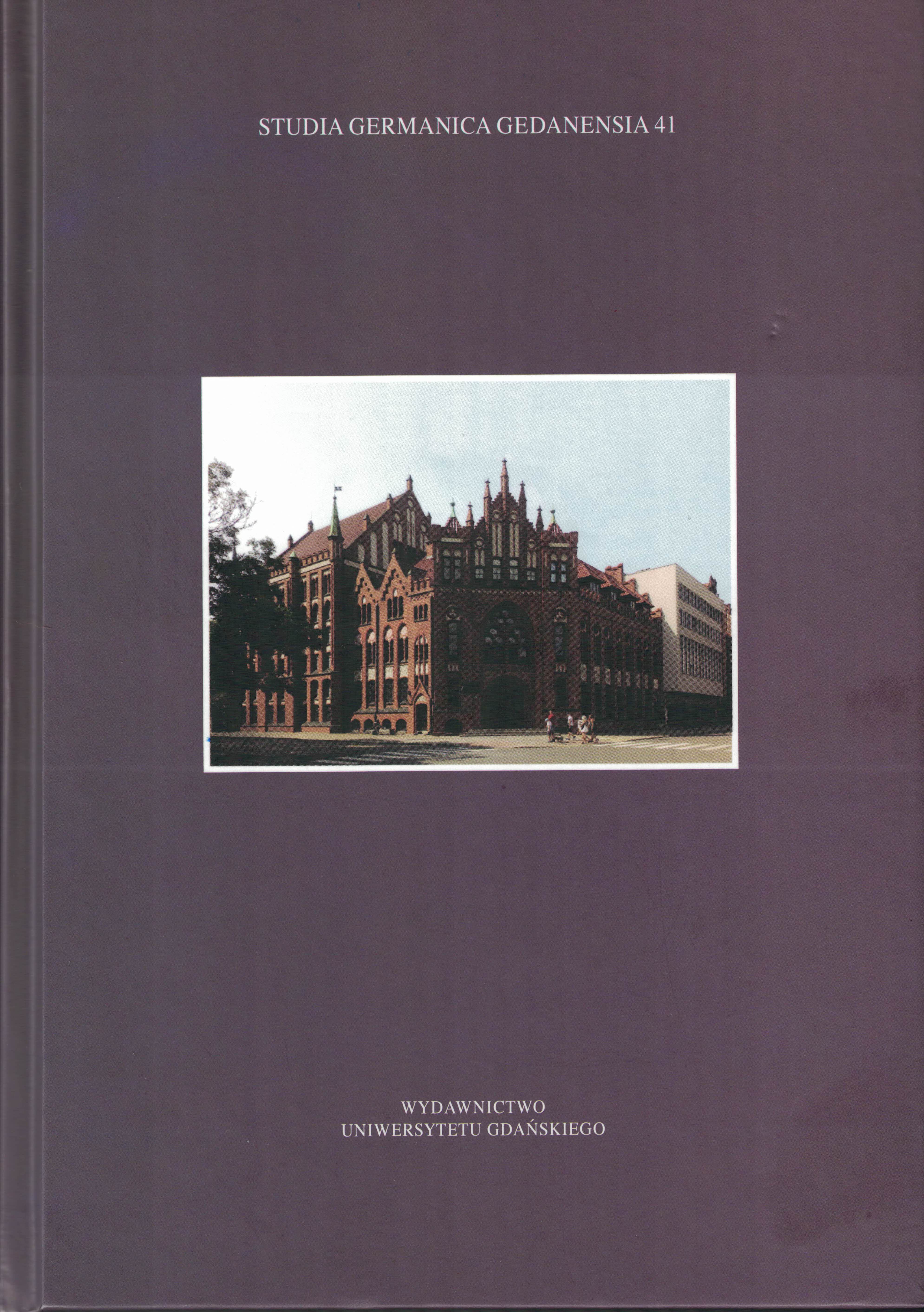Deutsche Modalpartikeln in Befehlssätzen: Intersubjektivität, Deontik und Satzmodusspezifizierung
DOI:
https://doi.org/10.26881/sgg.2019.41.03Słowa kluczowe:
Deontik, Modalpartikel, Satzmodus, IllokutionAbstrakt
Der Beitrag bietet einen Überblick über den Gebrauch von Modalpartikeln (MPn) in deontischen Sprechakten an. Wie verhalten sich MPn, die oft dem epistemischen Bereich zugeordnet werden, in Äußerungen ohne epistemische Komponente? Am Beispiel von doch skizziere ich zunächst ein Modell zur Verortung der modalen und illokutiven Interpretationsbreite von MPn. Dann wird der Gebrauch von JA, eben, halt und ruhig in Befehlsätzen untersucht. Schließlich werden die Sonderfälle nur und mal behandelt.
Downloads
Bibliografia
Abraham, Werner (2017): Modal particles and Verum focus: New corollaries. In: Fedriani, Chiara / Sanso, Andrea (Hg.): Pragmatic Markers, Discourse Markers and Modal Particles: New perspectives. Amsterdam: John Benjamins, 171–202.
Doherty, Monika (1985): Epistemische Bedeutung. Berlin: Akademie-Verlag.
Gast, Volker (2008): Modal particles and context updating: The functions of German ‘ja’, ‘doch’, ‘wohl’ and ‘etwa’. In: Vater, Heinz / Letnes, Ole (Hg.): Modalverben und Grammatikalisierung. Trier: Wissenschaftlicher Verlag, 153–177.
Gutzmann, Daniel (2011): Ob einer wohl recht hat? Zwei Satzmodustheorien für das Deutsche im Vergleich. In: Deutsche Sprache 39–1, 65–84.
Gutzmann, Daniel (2015): Use-conditional meaning. Studies in multidimensional semantics. Oxford: Oxford University Press.
König, Ekkehard (1991): The meaning of focus particles. A comparative perspective. London: Routledge.
Kwon, Min-Jae (2005): Modalpartikeln und Satzmodus: Untersuchungen zur Syntax, Semantik und Pragmatik der deutschen Modalpartikeln. Diss. der LMU München.
Meibauer, Jörg (1994): Modaler Kontrast und konzeptuelle Verschiebung. Studien zur Syntax und Semantik deutscher Modalpartikeln. Tübingen: Niemeyer.
Métrich, René / Faucher, Eugène / Courdier, Gilbert (1995–2002): Les Invariables difficiles. Dictionnaire allemand-français des particules, connecteurs, interjections et autres mots de la communication. Nancy: Nouveaux Cahiers d’Allemand. 4 Bde.
Modicom, Pierre-Yves (2016): L’énoncé et son double: Recherches sur le marquage de l’altérité énonciative en allemand. Paris: Diss. der Universität Paris-Sorbonne.
Modicom, Pierre-Yves / Duplâtre, Olivier (2018): Nicht nur Fokuspartikel: Geschichte und Varianz von nur im Deutschen. In: Gautier, Laurent / Modicom, Pierre-Yves / Vinckel-Roisin, Hélène (Hg.): Diskursive Verfestigungen. Berlin: De Gruyter, 73–92.
Recanati, François (2013): Content, Mood, and Force. In: Philosophy Compass 8, 622–632 (zitiert wird aus der Fassung unter URL: https://jeannicod.ccsd.cnrs.fr/file/index/docid/782906/filename/Force_and_content9.pdf [21.12.18])
Schoonjans, Steven (2013): Zur französischen Übersetzung der deutschen Modalpartikel doch: eine satztypübergreifende Analyse. In: Studii de gramatica contrastiva 19, 85–110.
Truckenbrodt, Hubert (2006): On the semantic motivation of syntactic verb movement to C in German. In: Theoretical Linguistics 32, 257–306.
Zaefferer, Dietmar (2001): Deconstructing a classical classification: a typological look at Searle‘s concept of illocution type. In: Revue Internationale de Philosophie 216, 209–225.
Zimmermann, Malte (2008): Discourse particles in the left periphery. In: Shaer, Benjamin / Cook, Philippa / Maienborn, Claudia / Frey, Werner (Hg.): Dislocated elements in discourse. Syntactic, Semantic, and Pragmatic Perspectives. London: Routledge, 200–231.
Pobrania
Opublikowane
Jak cytować
Numer
Dział
Licencja
Copyright by Instytut Filologii Germańskiej, Wydawnictwo Uniwersytetu Gdańskiego.

 Uniwersyteckie Czasopisma Naukowe
Uniwersyteckie Czasopisma Naukowe




